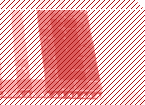| |
|
|
|
|
||
|
||||||||||||||||||||
| |
|
|||||||||||||||||||||||||||||
|
 |
 |
 |
|
||||||||||||||||||||||||||
| Dictionary of Primal Behaviour Urtica (FRY) Brucknerhaus 07.09. to 11.09. from 10:00 |
http://www.urtica.org |
|||||||||||||||||||||||||||||
In every language, there are sounds that express feelings. The Dictionary of Primal Behaviour brings them together in a multilingual database and translates them into visual codes. |
||||||||||||||||||||||||||||||
| © Ars Electronica Linz GmbH, info@aec.at | ||||||||||||||||||||||||||||||